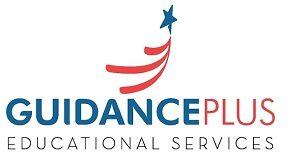
Selecting the appropriate SkillsFuture course can significantly boost your career. It can be intimidating to choose a course that best fits your career goals among the many options available. It is crucial to take into account a number of aspects in order to make an informed choice and guarantee that the course you choose will best advance your professional objectives.
Knowing What Your Career Goals Are
To select the appropriate SkillsFuture course, you must first clearly define your career goals. Think back on your career journey so far and where you want to be in the future. Determine the knowledge and skill gaps that must be filled in order to fulfil your career goals. Using the findings of this self-evaluation as a reference, you may choose the courses that will best help you achieve your objectives and get the most out of your time and financial investment.
Assessing the Relevance of the Course
It is important to consider how the course will fit into your future career goals and current job function. Taking a course that is directly relevant to your current work duties might improve your performance and offer immediate rewards. However, a course that gives you the tools for a future position can be a wise investment in your long-term professional development. Think about how the course material relates to your everyday responsibilities and the opportunity for professional growth. This guarantees that the course you select will have a noteworthy influence on your career advancement.
Taking the Course Format and Length into Account
Other crucial aspects to think about include the course’s duration and format. Decide if you would rather take a more hands-on, in-person course or an online course with greater flexibility. Think about how long the course is and how it will fit into your schedule. A course that is too lengthy may cause disengagement, while one that is too intense may be difficult to reconcile with employment obligations. Select a course structure and length that suit your learning preferences and schedule so that you can devote all of your time to the course and get the most out of it.
Evaluating Certification and Accreditation
Two important measures of a course’s legitimacy and acknowledgement are accreditation and certification. Make sure the course you select delivers a certification upon completion and is certified by a respectable organisation. This guarantees that the training satisfies industry requirements and enhances the value of your resume. Employers are more likely to recognise accredited courses, which will improve your professional credibility and job chances.
Looking for Guidance and Suggestions
Consulting with peers, mentors, and business experts can yield insightful information about the most appropriate SkillsFuture courses for your professional objectives. Their understanding of industry trends and their experiences allow them to make recommendations. Making connections with experts in your industry through networking can also help you find highly respected but lesser-known courses. You can choose a course with a successful track record and make a better-educated decision by drawing on the experiences and recommendations of others.
Conclusion
Selecting the ideal Skills Future course for your professional objectives requires careful consideration and planning. You can make an informed choice by knowing your job goals, looking for available courses, assessing relevance, thinking through the format and length of the courses, determining the accreditation, getting guidance, and coordinating with your career development plan. This guarantees that the course you choose will be as beneficial as possible and will help you to realise your career goals.

 How School Budget Cuts Are Affecting SEND Students and Their Support
How School Budget Cuts Are Affecting SEND Students and Their Support  Know How To Secure Admission In Top UK Universities: Tips For Overseas Applicants
Know How To Secure Admission In Top UK Universities: Tips For Overseas Applicants  A Step-by-Step Application Guide for Vietnamese Students Seeking High School in Australia
A Step-by-Step Application Guide for Vietnamese Students Seeking High School in Australia  Future Education Trends: These Key Elements Play Major Role In Meeting The Evolving Needs Of Students
Future Education Trends: These Key Elements Play Major Role In Meeting The Evolving Needs Of Students  The Ripple Effect of Principal Burnout—and How to Stop It
The Ripple Effect of Principal Burnout—and How to Stop It  Practical Tips for Dealing With College Stress
Practical Tips for Dealing With College Stress  8 Master’s Degrees in Education Teachers Should Pursue for Career Advancement
8 Master’s Degrees in Education Teachers Should Pursue for Career Advancement  Effective Follow-Up Work Strategies for Montessori Teachers: Fostering Growth
Effective Follow-Up Work Strategies for Montessori Teachers: Fostering Growth  Top Strategies for Finding Students for Online Teaching Using Social Media in 2026
Top Strategies for Finding Students for Online Teaching Using Social Media in 2026